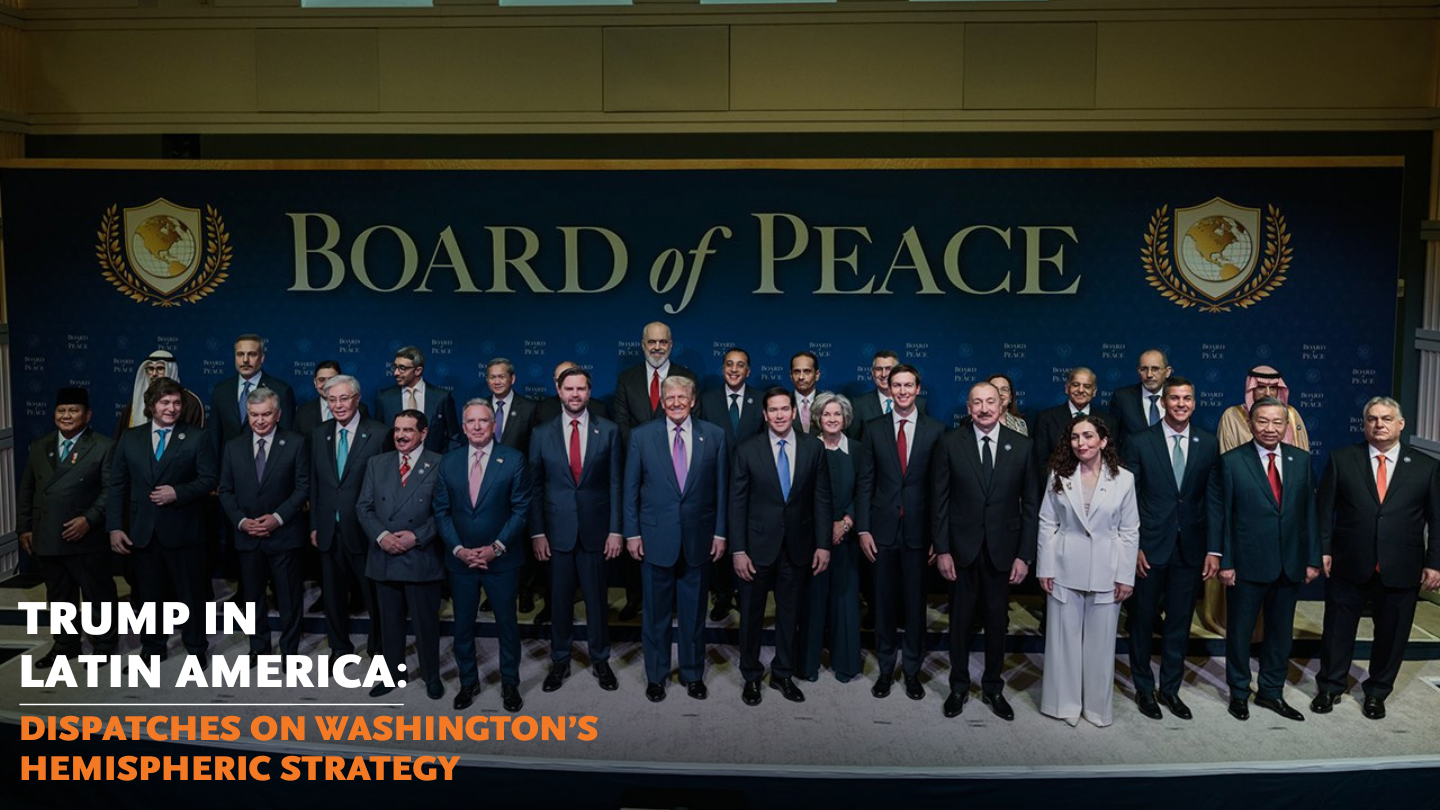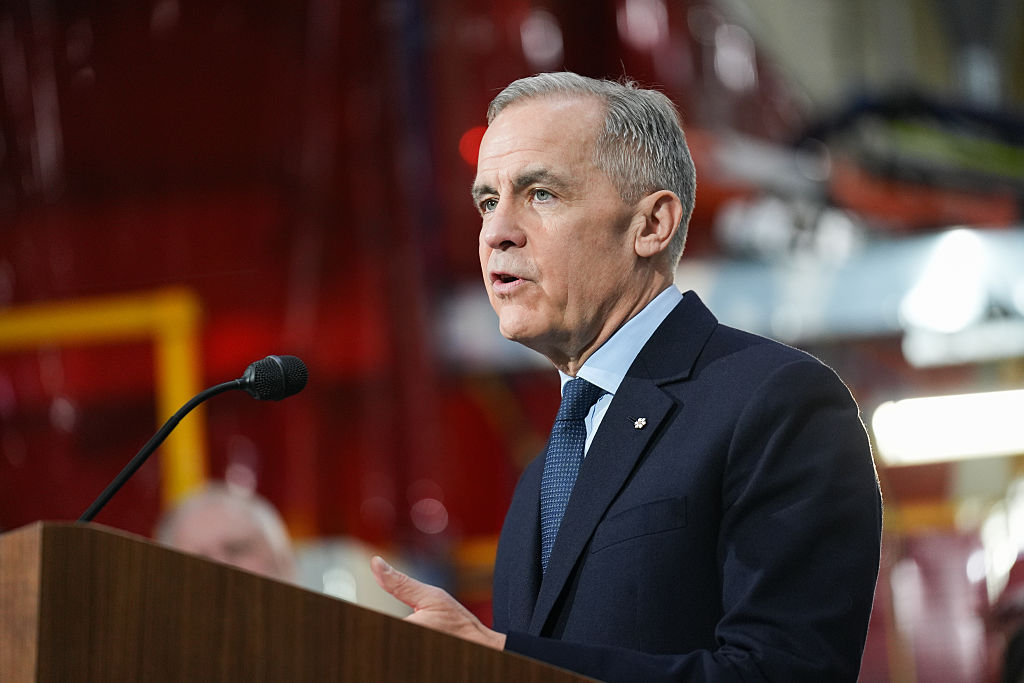Latin America Policy Is Stuck in the 1980s
Latin America Policy Is Stuck in the 1980s
U.S. policymakers need to shift their attention away from the domestic concerns of particular Latin American countries and toward a more international understanding of the region, writes AS/COA's Christopher Sabatini for CNN's Global Public Square.
After listening to the debate in Washington DC on Latin America, no one could blame you for believing you had taken a time capsule back to the 1980s. With Republican candidates focusing on the subversive threats of an outside power, U.S. senators railing against a populist government that lost its regional appeal years ago and holding up presidential nominations over Cuba, and leftist advocacy groups still blaming human rights abuses on U.S. policy, it sounds like little has changed in 30 years.
But a lot has changed, both in the region and in the commentary about it. That message simply hasn’t trickled up to U.S. policymakers. The fault isn’t just the politicians in DC; the blame lies in part with the U.S. academic community and advocacy groups.
Take a look at the Latin America course offerings at most U.S. universities and you’ll find a host of classes on comparative politics, social movements, electoral trends, and democracy. The same is true for U.S. scholarship: Apart from the occasional book on U.S. foreign policy - almost inevitably focused on the hemispheric hegemony of the “great colossus to the north” - what you won’t find is much on inter-state relations in the hemisphere. More than an oversight, in an era of rising powers inside and outside the region, this intellectual shortcoming has become a serious constraint in how we understand and respond to the modern Western Hemisphere.
Limited academic training combined with the vestiges of the Cold War (both in terms of paradigms and people) are holding U.S. debate and policy back. For one, much of U.S public attention and debate on the region remains focused on small countries, like El Salvador, Guatemala, Honduras and Cuba– many of them victims of the ideological battles of the 1980s - missing the positive developments that have occurred over the last 20 years and how they affect U.S. national interests.
Take Brazil. In the wake of its average 4.4 percent growth over the last 5 years, the South American giant has been chomping at the bit to become a regional and even global power. The “B” in the BRIC bloc of advanced emerging economies, Brazil’s sense of its own economic arrival, combined with a perception of declining U.S. influence, have reinforced the country’s historical dream of becoming a spokesperson for the developing world.
Brazil’s first agenda item in this leadership role has been the country’s traditional non-interventionist stance. In 2010, bucking international consensus, then-President Luiz Inácio Lula da Silva, together withTurkey, entered into last-minute negotiations to head off United Nations sanctions against Iran. The effort failed to produce a breakthrough, but demonstrated the country’s independent streak even in the face of the developed world’s consensus. While its current President, Dilma Rousseff, backed away from her predecessor’s Persian adventure, the government did oppose the U.N. resolution that endorsed NATO actions against the late Libyan dictator Moammar Gadhafi's regime, and publicly, even stubbornly, refused to discuss human rights in her trip to Cuba in early February.
Neither Brazil’s rise nor its regional and global initiatives should be understood as a threat. Quite the contrary: They open up opportunities for collaboration and dialogue.
The region has also shown other new fault lines of economic and political change. China, for example, has become the major trade partner of countries like Brazil and Chile and is set to displace the European Union as the region’s second-largest trade partner.
And of course there is Venezuela under President Hugo Chávez. The country’s neighbors appear content to remain silent in the lead-up to what will be a hotly - if unfairly - contested October presidential election. Whatever the outcome,Caracas’ neighbors have a stake in the integrity of the elections and their outcome in a country in which the U.S. and European countries have long alleged connections with narco-traffickers.
In the meantime, though, Washington is focused on other issues. The only time Latin America has come up in the Republican debates has been over the influence of Iran and Hezbollah in the region. While no minor matter, the issue hardly represents the sort of positive agenda that has characterized the 20-plus years of bipartisan engagement in the region.
Statements like Rick Santorum’s in the January 23 Republican debate alleging that Venezuelans, Cubans and Nicaraguans form “...a growing network of folks now working with the jihadists, the Iranians, who are very, very excited about the opportunity to have platforms ninety miles off our coast” resurrect outdated Cold War rhetoric and touch historic nerves south of the border.
GOP frontrunner Mitt Romney warns on his website that “the Bolivarian movement threatens U.S. allies…has encouraged regional terrorist organizations, and has even invited Iran and foreign terrorist organizations like Hezbollah into the region.” The U.S. House Foreign Affairs Committee last week passed the Countering Iran in the Western Hemisphere Act of 2012, which mandates the State Department to update Congress on the activity of Iranian forces and their proxies Hezbollah and Hamas across the hemisphere.
If you were to listen to the other side, though, one would think the most important issue was U.S. policy in countries like Cuba. Since the Cuban government’s December 2010 arrest of U.S. contractor Alan Gross who had been in Cuba distributing laptops and cell phones to the local Jewish community, a number of groups have done little but heap scorn, not on the Cuban government, but on the United States - most not even daring to mention the Cuban regime’s abysmal human rights record.
To be sure, there’s much to criticize about a program that is tied by law to the U.S. embargo and under the administration of George W. Bush was lavishly funded and cloaked under the rhetoric of regime change. But the dagger - beyond the overheated, politically charged rhetoric of the program - was nothing more than a set of electronic equipment that was deemed subversive by Cuban law.
Unfortunately, though, this is the state of Latin America-policy debate in the United States: lamely stuck in a past where the U.S. is either the long-awaited savior or a scourge of all that is sacred.
It’s time to move on.
U.S. policymakers need to shift their attention away from the domestic concerns of particular Latin America countries (over which the United States has shrinking influence anyway) and toward a more international and, yes, even realist understanding of the region. Such an approach would address how to grapple with, and embrace, rising economic and diplomatic regional players like Brazil. It’s an intellectual shift that academia and the advocacy community need to embrace as well, and one they can help shape.








